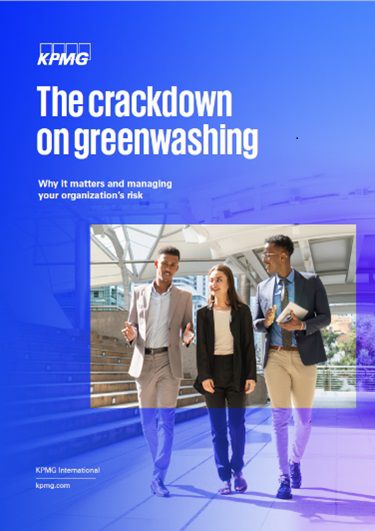As more products are being labelled "green" or "sustainable," there has been a rise in exaggerated, misleading or unsubstantiated claims — and financial services regulators are taking notice.
Regulators have a clear mandate to build trust in financial markets. But more than this, trust is imperative to sustainability and the environmental, social and governance (ESG) agenda. Engaging in greenwashing erodes trust and can make it difficult or impossible for consumers to take an organization’s ESG messages at face value.
There have always been regulatory and legal requirements to not mislead or misrepresent a product or service’s credentials. But the ESG agenda has ushered in an era of hyper-transparency and invites scrutiny from a significantly wider spectrum of stakeholders.
The fines courts around the world are imposing for greenwashing are starting to mount, but this is just the beginning. The commercial and reputational damage that comes with being accused of greenwashing, or being perceived as greenwashing, is usually a much greater cost.
What is greenwashing?
Greenwashing implies any dishonest practices used by businesses to represent themselves as more sustainable either by giving a false impression or providing misleading information as to the sustainability of a product/service.
In the past year, KPMG member firm professionals have come together to support clients in identifying where risks may lie and the steps, they should take to mitigate them. This paper details what we have learned, shares examples of organizations that have been challenged on what they sell and what they do and includes six steps organizations can take.

The Crackdown on Greenwashing
Why it matters and managing your organization’s risk
Download PDF (5 MB)
Connect with us
For more information about how KPMG professionals can assist organizations in fulfilling their purpose and achieving their ESG goals, connect with us today.


